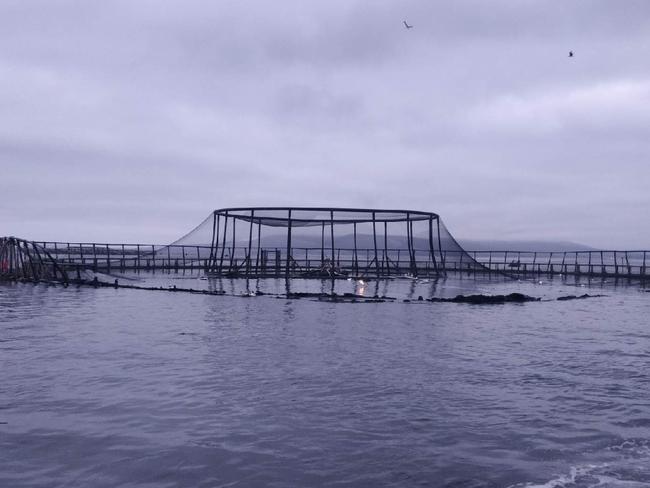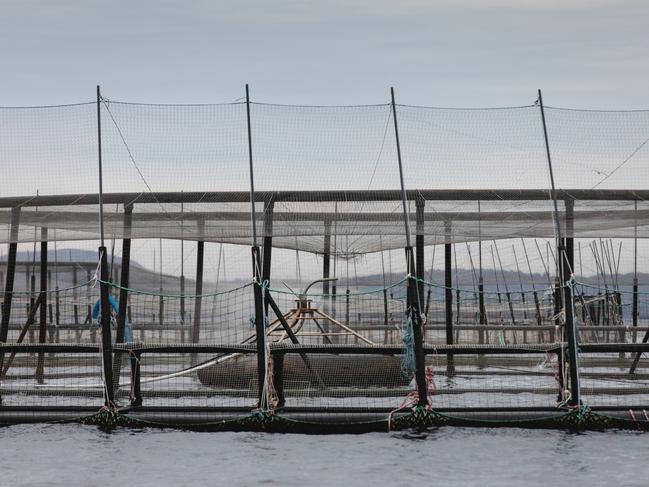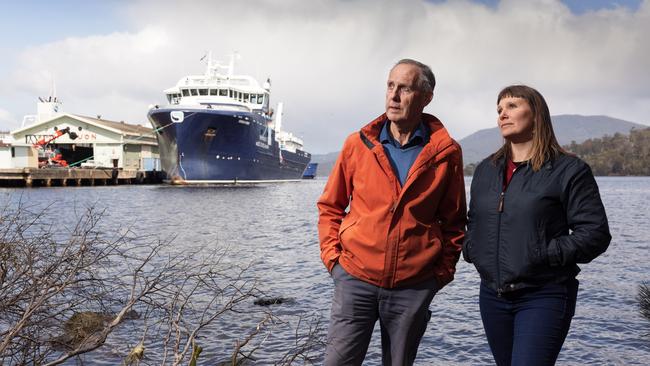Fish escapes likely did not causes significant ecological impacts, research finds
Two major fish escapes at Huon Aquaculture in 2020 are not believed to have caused significant ecological harm, but the Bob Brown Foundation says the research is letting the company off “scot-free”. DETAILS >>
Tasmania
Don't miss out on the headlines from Tasmania. Followed categories will be added to My News.
New research suggests two mass fish escape events in Tasmania’s south east in 2020 did not cause significant ecological damage, despite 180,000 Atlantic salmon escaping into waterways.
The fish escaped from Huon Aquaculture pens in 2020 after a fire melted pen infrastructure, resulting in 50,000 4kg fish swimming out in November, prompting a frenzy of fishers hoping to bag a big one.

A week later in December, a tear in a pen at Storm Bay resulted in up to 130,000 500 gram fish escaping.
The study by IMAS surveyed 210 recreational fishers who had targeted the escaped salmon.
The report’s author assoc prof. Jeremy Lyle said the fish dispersed quickly but the catch rate appeared to drop off after a month, suggesting low numbers of surviving fish.
But the survey found there were cases of some surviving at least four months.
Fishers reported when they looked inside stomachs of some fish, most were empty, but some had evidence of fish.
“We found there was very limited evidence to suggest active feeding on native species, meaning any ecological impacts caused by salmon preying on marine life were likely to be minimal,” Prof. Lyle said.

But he said survival did not mean the fish were thriving.
“Based on this lack of feeding and general declines in physical condition, it was likely surviving fish exhausted energy reserves and were effectively wasting away.”
Prof. Lyle also said the increase in recreational fishing could have had an impact on other species, but it wasn’t feasible to assess the survival of bycatch.
“Heavy and locally concentrated fishing activity, especially by gillnets, is expected to have some ecological impacts for inshore and estuarine fish species,” prof. Lyle said.

Bob Brown foundation marine campaigner Rebecca Howarth said the suggestion minimal harm had been caused was letting Huon Aquaculture off “scot-free”.
“There are many more questions that need answering about the wider impact of escaped predatory salmon,” Ms Howarth said
“More data is needed before we can accurately assess the environmental damage of these escapes.”
She said only a minority of fishers were surveyed.
“A survey of fishers is a start but not conclusive … how were native fish populations impacted?
“How many different species were eaten?”





